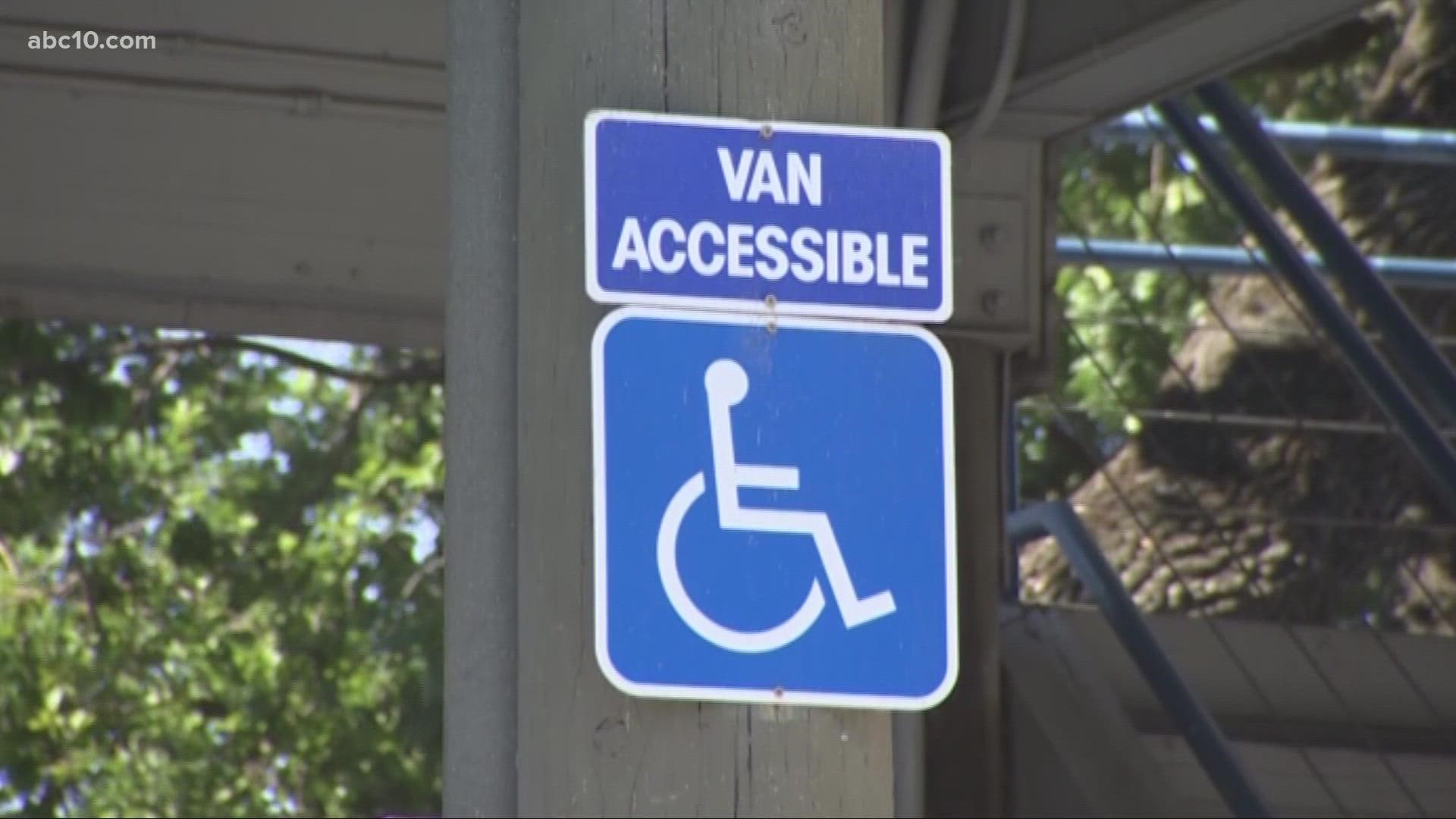SACRAMENTO, Calif. — Each year, thousands of Californians are legally allowed to be paid less than minimum wage for their labor. This is because some employers qualify for 14(c) certificates, allowing them to pay Californians with disabilities sub-minimum wages.
Jacqueline Armstrong was one of those employees, until she started working for SMUD in 2016.
“I work at SMUD, part time. It is the best job I’ve ever had. I do different scanning. I do data entry -- any sort of projects,” Armstrong said.
Armstrong is Sacramentan with disabilities.
“So, I am on the autism spectrum. I also have a non-verbal learning disability, so I’m very, very good at words. I’m very good at talking, and I am very savvy at computers,” Armstrong explained.
She said Californians with disabilities making sub-minimum wages just doesn’t make sense.
“If you’re doing like heavy kind of work and you’ll only be making like $4 an hour for that and someone next to you is doing the same job and making $8 an hour, that’s just not right,” Armstrong said.
Armstrong explained that she just wants what everyone else wants.
“I just want to do my job and get paid and live the way anybody else would, disability or not,” Armstrong said.
Senate Bill 639, signed into law by Governor Gavin Newsom Monday, attempts to allow for exactly that. Gregory Cramer is the senior legislative advocate with Disability Rights California, one of the sponsors of the bill.
“Senate Bill 639 phases out the sub-minimum wage for workers with disabilities starting next year,” Cramer said.
He said his organization has heard about some people being paid as little as $2 or less an hour.
“If you’re allowed to pay a dollar or two an hour for labor, then that just sets the expectation by society that people with disabilities don’t offer labor that has value to it. And that’s just wrong,” Cramer said.
Still, there was some opposition to the bill.
“Some are worried that certain jobs just won’t exist if you pay minimum wage. And so that’s something that we factored in throughout the legislative process,” Cramer said.
He said it’s not really a job if you don’t pay minimum wage.
“Teenagers still have to be paid minimum wage, part-time workers have to be paid minimum wage. It doesn’t matter your race or your sex or your gender. Why should disability matter?” Cramer asked.
Senator Maria Elena Durazo is the author of SB 639.
“I was quite surprised to see that in California we still allow these exemptions for minimum wage for our disabled community,” Durazo said.
Eight other states have already passed similar legislation, so in this instance, California is not leading the charge.
“We not only recognize that in California but across the nation, this is a civil rights issue,” said Durazo. “Developmentally disabled communities deserve the same rights as any other human being to fulfill their capacity, their talent and their skills.”
Starting in January, the state can no longer authorize new employers to pay sub-minimum wages. Employers who have already been doing so have until January 1, 2025 to increase their hourly wages to pay their employees at least minimum wage.
WATCH ALSO:

















